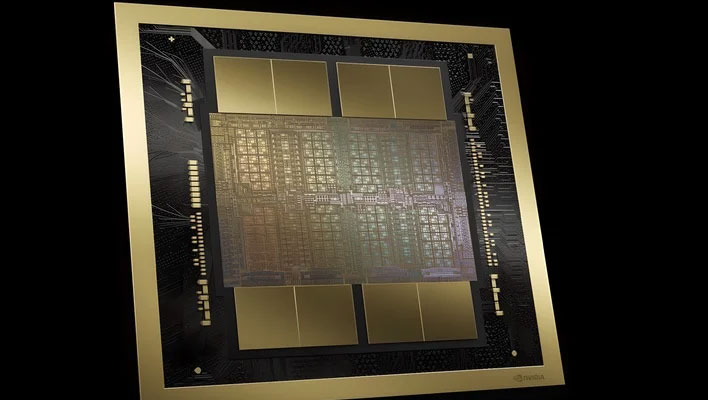Most of the leaks and rumors pointing to NVIDIA's eventual GeForce RTX 5090 graphics card suggest it's going to be an absolute
monster of a GPU. The latest one is no exception—according to Panzerlied over at the Chiphell forum, the base clock speed of the GeForce RTX 5090 will settle in somewhere close to 2.9GHz, which would be a huge increase over the GeForce RTX 4090's base clock.
In case anyone has forgotten, the base clock on the
GeForce RTX 4090, NVIDIA's current flagship consumer GPU, is 2,235MHz and it's boost clock is 2,520MHz. Going back a generation, the GeForce RTX 3090 Ti arrived with a 1,560MHz base clock and 1,860MHz boost clock, while the non-Ti variant debuted with a 1,395MHz base clock and 1,695MHz boost clock.
Here's a quick and dirty cheat sheet of where clock speeds have landed on NVIDIA's upper-tier GPUs over the past few generations...
- GeForce RTX 5090: Almost 2,900MHz (unconfirmed), ??? boost
- GeForce RTX 4090: 2,235MHz base, 2,520MHz boost
- GeForce RTX 3090 Ti: 1,560MHz base, 1,860MHz boost
- GeForce RTX 3090: 1,395MHz base, 1,695MHz boost
- GeForce RTX 2080 Ti: 1,350MHz base, 1,545MHz boost
- GeForce RTX 2080 Super: 1,650MHz, 1,815MHz boost
- GeForce RTX 2080: 1,515MHz base, 1,710MHz boost
According to a translated reading of Panzerlied's post, "The base frequency of 5090 is almost 2.9G..." If true, that would not only put the upcoming card's base clock speed well above that of the GeForce RTX 4090 (or any flagship NVIDIA SKU from the past several years), but also up to around 15% higher than the current flagship's boost clock.
It's not clear what precise clock speed "almost 2.9G," but at exactly 2.9GHz (2,900MHz), we'd be looking at a substantial 665MHz increase. That type of raw speed increase is not unprecedented, as the base clock gap between the GeForce RTX 4090 and GeForce RTX 3090 Ti is 675MHz, and 840MHz if comparing to the regular (read: non-Ti) GeForce RTX 3090.
There's no mention of where the boost clock will settle, but a 2.9GHz floor (or close to it) is a great starting point. If it holds true, we'd be surprised if the boost clock didn't end up somewhere north of 3GHz.
Bear in mind that gains will also be had simply by way of NVIDIA's
Blackwell architecture. While nothing is official regarding the GeForce RTX 5090, previous rumors have it pegged as pairing a generous
28GB of GDDR7 with a wide 448-bit memory bus. That combo would deliver over 1.5TB/s of memory bandwidth, assuming 28Gbps memory chips.
Of course, none of this is coming directly from NVIDIA or even by way of a partner leak, as is prone to happen on occasion. There's no doubt the GeForce RTX 5090 will be a monster GPU even if the
leaked base clock ends up being untrue. It's just a matter of how beastly it ends up being.



